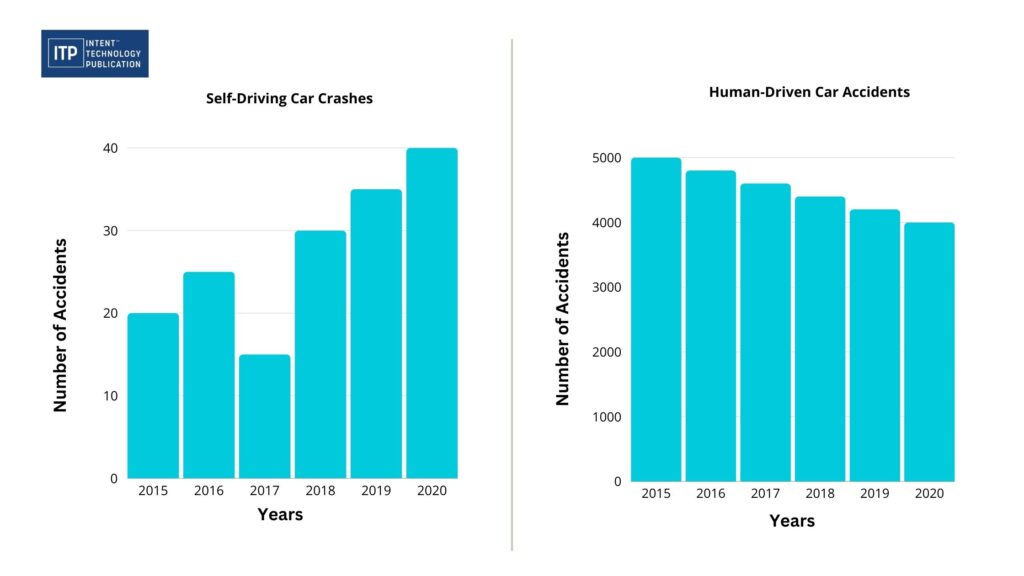or call: +1 (845) 347-8894

or call: +1 (845) 347-8894
or call: +1 (845) 347-8894

The once-distant self-driving cars is quickly following us from the world of science fiction to our own. Technology giants and car producers are in a desperate attempt to make this concept a reality, and, surprisingly, that is not a pipe dream from that. As it draws closer to fruition, we are grappling with a significant inquiry: who is responsible in the event of a mishap?
But what does the paradigm of at-fault even mean any longer when shifting from human to computer drivers? The traditional cascade of vehicular accidents can be broken down into a few simple examples – a driver not paying attention, a stop sign not being observed, or attempting a hasty maneuver to switch lanes. However, the ease of self-driving cars obscures all these clear distinctions and weaves us into a matrix of potentiality at fault. Is this the fault of the car producer? Or a coder’s error? Or a combination of both?

Up to this day, the producers of vehicles bore the responsibility of making their commodities safe. However, in the age of autonomous cars, the situation has changed. Indeed, a design defect or a manufacturing mistake can cause accidents as well as put the producers at the forefront of legal battles. To put it in perspective, “The National Highway Traffic Safety Administration tells us that over 90% of vehicle accidents are caused by human error”. This number is intended to decrease dramatically due to autonomous cars, but it puts the producers into focus if such a mistake does take place.
However, the brains of this self-driving brawn, such as a software program, have an equally crucial function. The coding that powers these cars is intricate and expansive, and even one significant mistake could have catastrophic repercussions. And the job programmers have ahead of them is enormous; they must develop software that can quickly guide them through countless driving conditions.
Imagine yourself in an autonomous-vehicle round watching the moment of a crash. You are okay, but the crash lingers in your memory, leaving you wondering. In the not-too-distant future, you may expect the rider to become embroiled in legal procedures from car manufacturers to software behemoths and, significantly, the ride-sharing firms that dispatch these futuristic fleets on the path.
The transition to a world primarily employing self-driving cars will be slow, with traditional cars remaining on the road for a time. When a regular car and an autonomous car collide, investigators must thoroughly examine the specifics of the crash to resolve every potential issue.
At a crossroads, insurance companies must tackle this liability challenge. The conventional model of insurance becomes entirely unclear with self-driving vehicles. The industry is debating away toward, coverage of the vehicle as well as the expertise in it, wherever discussions may sound unlikely towards this regarding the human non-driver.
In anticipation of and response to these new technologies, some states have begun the process of drafting laws specifically for autonomous vehicles. These regulations can establish an explicit legal framework for testing and deployment, as well as a casualty basis as things blow up. Nevertheless, there is currently no national standard, meaning instead gathering our mosaic of state laws, each of which offers a different view of the future of transportation.
As the days loom closer to a world teeming with self-driving cars, the system of laws attempting to catch up urgently requires full-scale renovation. The issue of adequate laws is not merely about properly assigning fault; it is fundamentally about providing security and support to all road participants. The path to fully autonomous cars is paved with legal potholes and ethical speed bumps. However, the hope of an efficient transition is in rigorous testing, immaculate software engineering, and unyielding exploration of morality abolished from the driver’s seat pair of hands.
Self-driving cars are a significant waypoint in the grand tapestry of technological advancement. But with Prometheus’s gift, we must remember that our guiding star is the safety and well-being of every individual on the road. The journey to a future where autonomous cars rule the roads does not involve measuring by lawsuits and insurance companies. But it is a struggle to create a safer and better world through the magic of technology.
However, the path of their introduction into our daily lives is not paved with roses. By traveling our streets, they unconditionally violate our optimal legal framework, which forces them to reconsider the principles of liability, safety, and responsibility. Therefore, the dilemma of where the money for a self-driving car crash comes from is not a lawyer’s issue. It is an example of self-driving cars in this whopping renovation and revival that develops.
The pillar of this bridge is well-considered, retroactive legislation. Together, legislators, technology companies, and car manufacturers can develop laws that keep people safe while still encouraging innovation. When self-driving technology advances, the collaborative approach ensures that our legal systems are adaptive and strong, providing a safer potential for the route ahead.
Self-driving cars will alter the landscape of our society, bringing both unparalleled opportunities and unprecedented challenges. As we stand on the brink of this automotive enlightenment, we are in dire need of a practitioner able to drive us through. Through a symbiosis between the legal, technological, and automotive domains, we can set the groundwork for a world where self-driving cars not only radically change our roads but accomplish so in a safe, just, and utmost socially conscious manner. But, at the same time, we must also remain vigilant. Although we are willing to give up the wheel of autonomous automobiles, we must refuse to do so when it comes to policies, ethics, and humanity.
